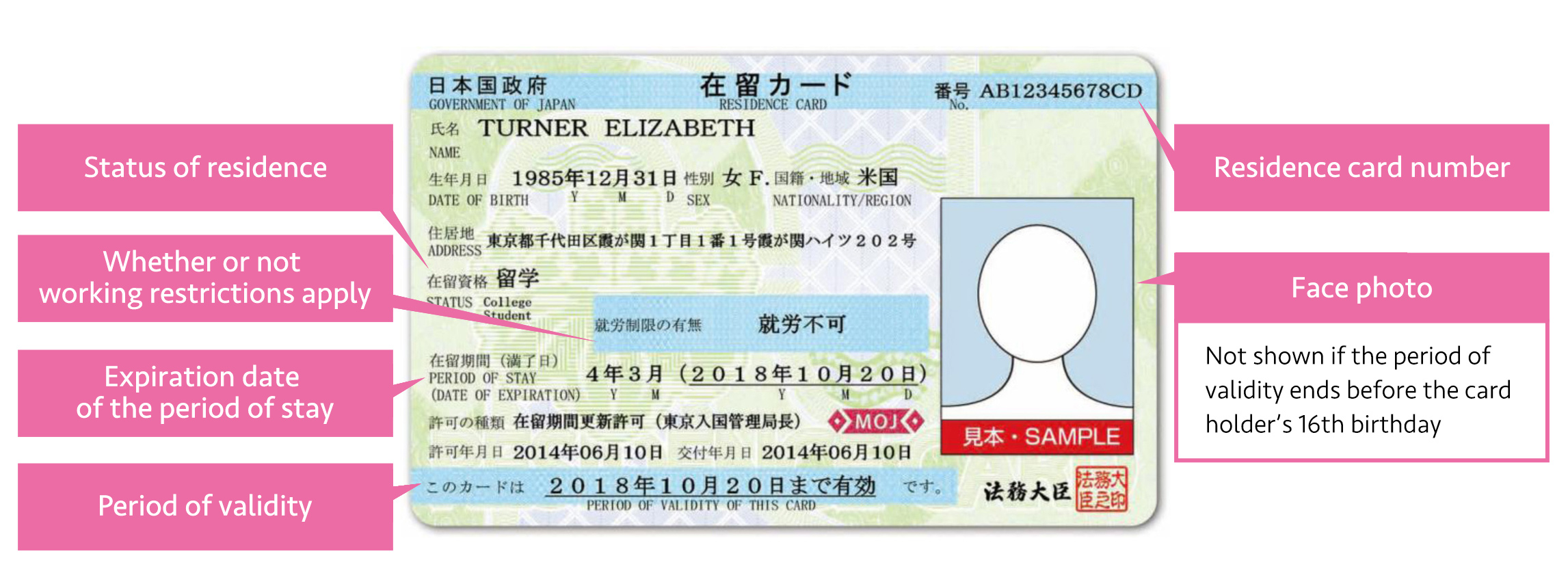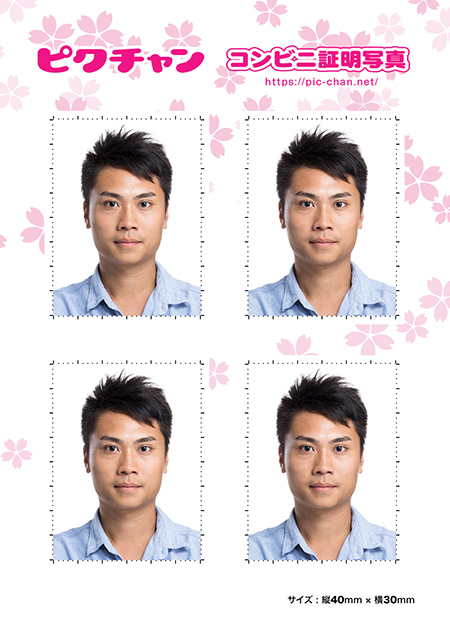Obtaining a residence card is required when hiring a foreign national. How can you help the process go smoothly?
In order to secure the personnel that companies need, people are turning their attention to the hiring of foreign nationals. To work in Japan, foreign nationals must apply for residence status and hold a “residence card.” What is the process for obtaining this card? We asked Mr. Yoshiaki Suzuki, a notary public with extensive experience in the area of residence permission.
To work in Japan, a “residence card” is a must.

Today, the number of foreign nationals working in Japan is steadily increasing, and more companies are thinking about hiring foreign nationals. The hiring process requires specific knowledge and procedures, so it’s important to be well prepared in order to respond to various situations at any time.
In principle, foreign nationals staying in Japan for over three months need to apply for residence status. Roughly speaking, there are two types of residence status: “personal relationship/other” and “working.” When permission is granted, a residence card is issued.
“Personal relationship/other” residence status applies to permanent residents, spouses of Japanese nationals and their children, etc. “Working” residence status, which is required for foreign nationals who wish to work in Japan, is divided into a number of specific categories. Let’s look at working residence status in more detail.
Types of work permitted with working residence status
Currently, residence status allowing foreign nationals to work in Japan is divided into the categories in the table below. (Some exceptions apply.) Once an application for working residence is approved, the applicant is allowed to work in the specified field.
| Residence status | Examples |
|---|---|
| Diplomacy | Ambassador of a foreign government, envoy, consul general, delegation member, etc. and their family members |
| Professor | University professor, etc. |
| Artist | Composer, visual artist, writer, etc. |
| Religious Activities | Missionary assigned by an overseas religious organization, etc. |
| Journalist | Press reporter or photographer for an overseas media organization |
| Highly Skilled Professional | Highly skilled personnel, in accordance with the point system |
| Business Manager | Manager or administrator of a company, etc. |
| Legal/Accounting Services | Attorney, certified public accountant, etc. |
| Medical Services | Physician, dentist, nurse, etc. |
| Research | Researcher for a government-related institution, private enterprise, etc. |
| Education | Language instructor at a junior or senior high school, etc. |
| Engineer / Specialist in Humanities / International Services | Engineer (mechanical, etc.), interpreter, designer, language instructor at a private company, marketing specialist, etc. |
| Intra-company Transferee | Transferee from an overseas office |
| Caregiving | Care worker |
| Entertainer | Actor, singer, dancer, professional athlete, etc. |
| Skilled Labor | Chef of foreign cuisine, sports instructor, aircraft pilot, artisan (e.g. precious metal craftsman), etc. |
| Technical Intern Training | Technical intern |
Status types such as “Engineer / Specialist in Humanities / International Services” tend to be prevalent in hiring personnel for corporations, and “Intra-company Transferee” etc. for transfers from overseas headquarters or branch offices.
Status of residence is governed by the Immigration Control Act. In April 2019, major amendments will be implemented, and these will significantly impact companies considering the hiring of foreign nationals. For example, the new status “Specified Skilled Worker” will be established, and restrictions will be partially lifted for unskilled labor, a category that was not recognized previously. Please be sure to check the latest information.
Categories included in the additionally planned “Specified Skilled Worker” residence status
- Care Worker
- Building Cleaning Management
- Machine Parts and Tooling Industries
- Industrial Machinery Industry
- Electric, Electronics and Information Industries
- Construction Industry
- Shipbuilding and Ship Machinery Industry
- Automobile Repair and Maintenance
- Aviation Industry
- Accommodation Industry
- Agriculture
- Fishery and Aquaculture
- Manufacture of Food and Beverages
- Food Service Industry
A residence card contains important information.
When an application for residence is approved, a residence card is issued as an identity certificate. A residence card contains basic information such as name, birth date, gender and nationality, as well as other important information including status of residence, expiration date of the period of stay, and whether working restrictions apply. For the purpose of identification, a face photo of the card holder is also affixed to the card (except in cases where the period of validity ends before the card holder’s 16th birthday).

Application procedures that are challenging for foreigners - Q & A Guidance
The residence card is an important item in the comprehensive administration of foreign residents, including the prevention of unauthorized employment (which has become a serious problem in Japan). Applying for residence status is more difficult than people imagine, so I encourage you to learn as much as possible and provide support when needed.

Q1 Can a residence card holder engage in any type of work?
A1 A residence card based on designated status of residence is required, and the card holder may not engage in employment outside the scope of this designation. However, permanent residents, spouses of Japanese and so on are exempt from employment restrictions, and overseas students are allowed to work up to 28 hours per week at part-time jobs, etc.
Q2 Can a representative submit a residence application on behalf of the applicant?
A2 In many cases, applications are complex and it may be difficult for the applicant to prepare all the required documents by him/herself. In the case of working residence status, some applicants receive support from the company’s hiring staff. After notifying the Immigration Bureau, an authorized attorney or notary public is also permitted to carry out document submission and other procedures on behalf of the applicant.
Q3 What types of application documents are required?
A3 In addition to general documents required for all applications, other documents are needed depending on the type of residence status. If the necessary documents are not in order, the application will be regarded as incomplete. Please be sure to check the requirements on the Immigration Bureau website, etc.
Q4 Are there important points to be aware of when preparing an application?
A4 Be sure to check the issuance dates of documents being prepared. In principle, the dates of documents that can be obtained in Japan (such as tax payment/declaration certificates and certificate of residence) must be less than three months before the application, and the dates of documents obtained overseas (such as birth certificates) must be less than six months before.
Q5 What does a company need to be careful about when providing application support?
A5 Be sure to check whether the company’s work includes activities that correspond to the applicant’s field of study in school, or activities that involve knowledge and technical skill. The application is more likely to be approved if as many relevant materials as possible are attached—e.g., items favorable to the applicant such as photos showing him/her engaged in on-site work activity, or certificates verifying his/her work history. Keep in mind, however, that applications must never contain false information.
For applicant verification, submit an ID photo that meets the requirements.

Another important application document is the ID photo. In many cases, photos provided by applicants do not meet all the specifications, so always be sure to check the photo.
What type of ID photo should be submitted?
There are specific requirements for submitted photos, just as there are for general ID photos.
- Photo dimensions: 4 cm (height) x 3 cm (width)
- Length from top of head to bottom of chin: about 2.5 cm
- No one other than the applicant should appear in the photo.
- The photo should be taken in a location with a plain (blank) background.
- The applicant should directly face the front and should not wear a hat or head covering.
- The photo must be clear.
- It should be taken within three months prior to the date of submission, etc.
Even rules for ID photos that are easily understood by Japanese may be unfamiliar to people from other countries. In cases that I’ve handled, there have been photos with the top of the head cut off, trimmed snapshots, photos showing the person striking a pose, etc.
I’ve even received old photos taken a decade earlier. To verify identity, the photo must have been taken within the previous three months. If a photo does not meet the specifications, a new photo has to be taken.
*The information in this article is from the time of writing (January 2019).With Pic-Chan, you can print a photo taken overseas!

If an ID photo does not meet requirements, it may not be possible to take another photo immediately in some cases, for example if the applicant is overseas. By using a printing service such as Pic-Chan, which prints smartphone photos at convenience stores, you can deal with unexpected problems right away.
Photos can be taken any number of times, and checked to make sure they meet requirements. |
Image data can be sent from overseas, and confirmed and printed in Japan. |
If the photo is not ready by the time of the application, it can be prepared quickly at a nearby convenience store. |
Unexpected problems such as the loss of a passport can be dealt with. |
The printing cost is low. |

Applying for residence status is an extremely important process that affects the applicant’s entire life. It’s essential to ensure that an application is not rejected due to writing errors or confirmation omissions, and that permission is not refused due to submission of incorrect information. You are encouraged to provide support so that foreign nationals can obtain their residence cards smoothly and lead successful lives in Japan.








